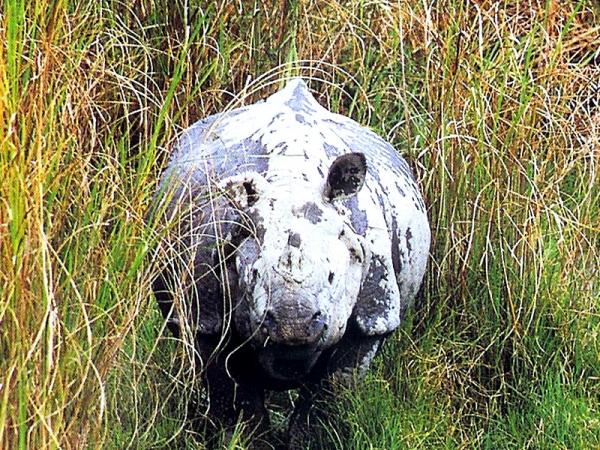18 Fascinating Ecosystem and Biosphere Reserves of Natural India
The Indian government has selected 18 Biosphere Reserves across the country, Nine of the eighteen biosphere reserves are a part of the World Network of Biosphere Reserves. These biosphere reserves protect larger areas of natural habitat and offers home to the large species of flora and fauna of India.
Nilgiri Biosphere Reserve

The Nilgiri Biosphere Reserve was the first biosphere reserve in India established in the year 1986, located in the Western Ghats and Nilgiri Hills ranges of South India. Nilgiri Biosphere Reserve, is a World Heritage Site declared by UNESCO in 2012 and includes the Mudumalai, Mukurthi, Wayanad and Bandipur national parks.
Great Rann of Kutch Biosphere Reserve

The biosphere reserve of Rann of Kutch is an important area for critically threatened vulture species and several vulnerable species of eagles too, Banni grasslands and Chhari Dhand are the two birding hot spots in flooded grasslands of Kutch.
Agasthyamala Biosphere Reserve
The Agasthyamala Biosphere Reserve is composed of Neyyar,Peppara and Shendurneyw ildlife Sanctuaries and adjoining areas of Kalakkad Mundanthurai Tiger Reserve and home to rare animals include the tiger, Asian Elephant and Nilgiri Tahr.
Gulf of Mannar Biosphere Reserve
The Gulf of Mannar Biosphere Reserve is the first marine biosphere reserve in Asia, located in the Southern part of the Bay of Bengal, Gulf of Mannar Marine National Park is known for its Mangroves,Green turtle,Clownfish and coral reefs.
Sundarbans Biosphere Reserve

The Sundarbans Biosphere Reserve is a National Park and Tiger Reserve in West Bengal and part of the Sundarbans on the Ganges Delta and home to a variety of bird, reptile and invertebrate species, including the salt-water crocodile. Sundarbans Biosphere Reserve is densely covered by mangrove forests and one of the largest reserves for the Bengal tiger.
Nanda Devi Biosphere Reserve

The Nanda Devi Biosphere Reserve is located in the northern part of of west Himalaya in India and surrounded by a ring of peaks and part of the UNESCO World Network of Biosphere Reserves since 2004.
Cold Desert Biosphere Reserves
The Cold Desert biosphere reserves of India includes in itself Pin Valley National Park and surroundings Chandratal and Sarchu & Kibber Wildlife Sancturary in Himachal Pradesh. Cold deserts is located in the lap of the Ladakh in Himalayas.
Simlipal Biosphere Reserve
The Similipal Biosphere Reserve has been notified by Government of India in 1994 and a tiger reserve, national park and part of the Similipal-Kuldiha-Hadgarh Elephant Reserve popularly known as Mayurbhanj Elephant Reserve.
Seshachalam Hills Biosphere Reserves
The Seshachalam Biosphere Reserve became the first biosphere reserve in the entire State and the hill ranges are rich in plant diversity and home to many endangered animals.
Nokrek Biosphere Reserve
The Nokrek Biosphere Reserve is a national park, hotspot of biodiversity located in West Garo Hills district of Meghalaya. Eentire Nokrek Biosphere Reserve is virgin canopy of thick, tall and lush green forests and home to Red panda in India.
Pachmarhi Biosphere Reserve
The Pachmarhi Biosphere Reserve includes three wildlife conservation units the Bori Sanctuary, Satpura National Park and Pachmarhi Sanctuary. Pachmarhi reserve is mostly covered in forest and an important transition zone between the forests of western and eastern India.
Great Nicobar Biosphere Reserve
The island of Great Nicobar, the largest of the Nicobar Islands lie in the Bay of Bengal, eastern Indian Ocean. Great Nicobar Biosphere Reserve is home to many species of plants and animals, often endemic to the Andaman and Nicobars region.
Achanakmar-Amarkantak Biosphere Reserve
The Achanakmar-Amarkantak Biosphere Reserve is extends across the states of Madhya Pradesh and Chhattisgarh and home to 26 tigers, 46 panthers, 28 bears, 1936 Chitals, 1369 sambars, 376 barking deer and 552 bison.
Panna Biosphere Reserve
The Panna Tiger Reserve is become one of the 18 biosphere reserve in India and home to some of the best wildlife species in India and also well known for being one of the best Tiger Reserves.
Dibru-Saikhowa Biosphere Reserve
The Dibru-Saikhowa Biosphere Reserve is bounded is by the Brahmaputra and Lohit rivers and situated in Dibrugarh and Tinsukia district of Assam and consists of moist mixed semi-evergreen forests, moist mixed deciduous forests, canebrakes and grasslands.
Manas Biosphere Reserve

The Manas Biosphere Reserve is National Park or Wildlife Sanctuary, a Project Tiger Reserve, an Elephant Reserve, located in the Himalayan foothills in Assam. Manas National Park is known for its rare and endangered endemic wildlife such as the Assam Roofed Turtle, Hispid Hare, Golden Langur,Pygmy Hog and Wild water buffalo.
Khangchendzonga Biosphere Reserve

The Khangchendzonga Biosphere Reserve is a National Park located in Sikkim and home to many glaciers in the park including the Zemu glacier and wild animals like musk deer, snow leopard and Himalayan Tahr.
Dihang-Dibang Biosphere Reserve
The Dihang Dibang Biosphere Reserve is located in Arunachal Pradesh and includes Mouling National Park and Dibang Wildlife Sanctuary. Dihang-Dibang reserve is rich in wildlife rare mammals such as Mishmi takin, red goral, red panda and flying squirrels.








